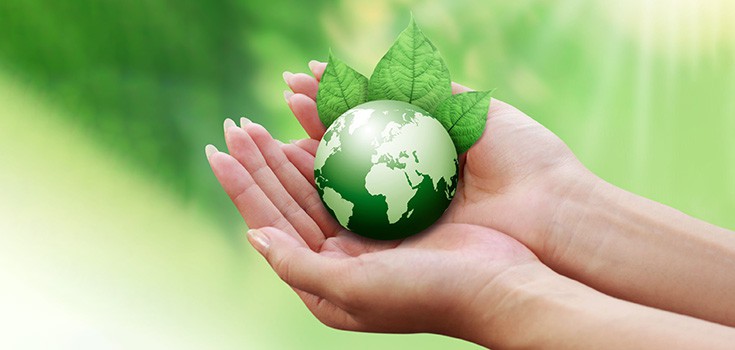Tiny Himalayan Country Becomes First 100% Organic Nation

Perhaps you remember a nation that proclaimed gross domestic happiness was more important than gross domestic product? Well, the very same country, Bhutan, nestled in the Himalayan mountains, has decided to become the first 100% organic nation. Anthony Gucciardi previously reported on this exciting news, but it’s so exciting that we need to report on it again with some new information.
With a population of 700,000 people, Bhutan is known as a country of farmers. If they didn’t think they could feed a large population on organic crops, they wouldn’t declare organic farming to be the best form of agriculture for their country with a comprehensive plan to make the change.
Recently, the Prime Minister Jigmi Thinley told his government he is developing a National Organic Policy because the country’s farmers are increasingly convinced that “by working in harmony with nature, they can help sustain the flow of nature’s bounties.”
Many farmers like to use chemical fertilizers, even in Bhutan, because they believe it enriches their soil and helps to keep diseases and pest in check, but admirably, the Prime minister, as well as an Australian advisor to Bhutan named Andre Leu, Bhutan says that all-out organic farming is very doable.
Leu has said, “I don’t think it’s going to be that difficult given that the majority of the agricultural land is already organic by default.” This is because the expensive fertilizers used by U.S. farmers are not readily available to most farmers in Bhutan.
The World Food Program states that Bhutan grows primarily rice, corn, and potatoes as well as oranges, but is it possible as organic food demands increase, that farmers in Bhutan can start to enjoy demand for more varied crops? Currently most organic farms in Bhutan are not certified (only 1% of all organic food is currently ‘certified’ organic) but if the whole country becomes organic, might it not enjoy larger exports of pure, non GMO food?
Right now Bhutan exports red beans to U.S. companies like Whole Foods, but as the new all-organic program spreads, and farmers in Bhutan are trained in new methods that will help them grow organic and become closer to self-sufficiency, we might see ‘made in Bhutan’ more often as a welcome change to the frankenfoods being offered by companies in our own country.
With current and past research finding that GMOs lead to tumor in rats, severe stomach inflammation in pigs, and increased disease rates, it’s more important than ever to spread to the word on the importance of going organic and shifting to sustainable, safe farm practices. It is you who will ignite change.

I'm excited for Bhutan. I'm also apprehensive that farmers there will face bureaucratic fees and hardships associated with becoming "Certified Organic". The better route might be to ban the sale, manufacture, and import of petroleum-based fertilizers and pesticides as well as GMO's. Without these additives, the country goes organic by default rather than via permitting.
Yes the fertilizers are not good it goes right into the land and the food so it can't be organic like what they claim about most food here the fertilizers are still very bad for the environment, and the bees why can't they work with the crops like back in the old days w hen there were no fertilizers like this .I've seen some inside hydro gardens ,that get set out in the sun and are netted and they are beautiful using no bad fertilizers .The butter lettuce is delicious & looks so healthy it's grown year round inside the clear domed building,where nothing seems to bother it .People are using jars ,bottles . Plenty of old windows wind up in landfills and plastic bottles and buckets to make large green buildings ,even cans painted black can heat the water from the sun and recycled back in in the winter months seems to work great for them .